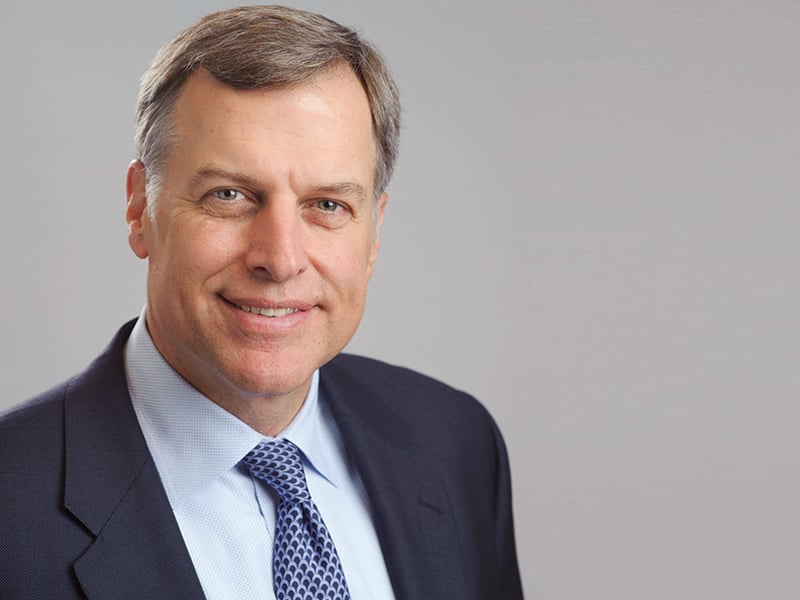Bank of America Merrill Lynch executive John Thiel's move last week to
call for a “best interest” standard of care and for working with the Labor Department marks a turning point in the debate over a fiduciary standard, industry observers and proponents of a uniform standard said.
Rather than treating it as a “force to be reckoned with,” Merrill Lynch has turned the fiduciary standard into a competitive advantage, said Blaine Aikin, chief executive of fi360, a fiduciary consulting firm. Betting on a controversial proposal from the Labor Department also gives more credibility to the wirehouse's push for goals-based wealth management and puts pressure on other major brokerage firms to speak up, Mr. Aikin and others said.
“They're saying, 'We're not afraid of that [best-interest standard]. That's how we think the business should be run, and we're not afraid,'” said Barbara Roper, director of investor protection at the Consumer Federation of America.
In voicing his support of that standard, Mr. Thiel broke ranks from top executives at other wirehouses. Indeed, those executives have all said they support a best-interest standard in theory, but have refrained from going so far as to support the DOL proposal.
A spokeswoman for Wells Fargo Advisors, Rachelle Rowe, declined to comment, as did UBS spokesman Gregg Rosenberg. A spokeswoman for Morgan Stanley Wealth Management, Christine Jockle, did not respond to requests for comment.
The Securities Industry and Financial Markets Association has said the DOL's proposal would limit the industry's ability to serve mass-affluent clients because it would hamper their ability to receive commissions. It has offered support for the SEC coming up with a rule, as long as it can preserve certain elements of the brokerage business model.
That stance against the DOL, however, has drawn criticism and painted Wall Street as being opposed to investor interests. A New York Times story from June last year was titled
“Brokers Fight Rule to Favor Best Interests of Customers”. The issue gained more attention when President Barack Obama said that
conflicted advice was costing Americans billions.
Merrill Lynch's move shows that the wirehouses may have more to gain, particularly from a marketing perspective, by supporting the issue, according to Mr. Aikin.
“It's a smart approach to take,” he said. “I do think it puts pressure on [other firms].”
The move also made sense for Merrill Lynch from a business standpoint, Mr. Aikin said. The four wirehouses have all been trying to bill their advisers as sitting on the same side of the table as clients as they push more fee-based relationships or managed accounts where advisers are already required to act as fiduciaries, he said.
“It's a natural place to go, and we see that change taking place,” Mr. Aikin explained. “And then technology is just making things much more transparent, so it's very difficult to have nontransparent types of communication or conflict forms of compensation that exist in the products.”
Merrill Lynch has overhauled the technology behind its managed account platform in recent years as part of the upgrade to Merrill Lynch One and estimates it is spending more than $1 billion on the platform as it rolls out new financial planning applications, such as Merrill Lynch Clear.
Tony Sirianni, a former complex manager with Morgan Stanley Smith Barney who now consults through his firm Sirianni Strategy Group, said Merrill's taking the lead showed the firm could still live up to its reputation as an innovator, and compared it to Merrill's introduction of the cash management account. The CMA was initially derided by some brokers who thought it was counter-productive to encourage clients to make withdraws on their brokerage account.
“The CMA checkbook was greeted with a lot of cynicism,” Mr. Sirianni said. “This could be the first salvo of Merrill saying that we have to talk about these things.”
Mr. Thiel's comments have so far been well received by managers and advisers at the firm, according to spokeswoman Susan McCabe. She declined, however, to elaborate further on Mr. Thiel's comments.
Knut Rostad, president of the Institute for the Fiduciary Standard, offered praise for Mr. Thiel, although he said he wanted to see more concrete steps taken toward establishing what a best-interest standard would look like.
“They've got to go further in order to be compelling, frankly,” Mr. Rostad said.







